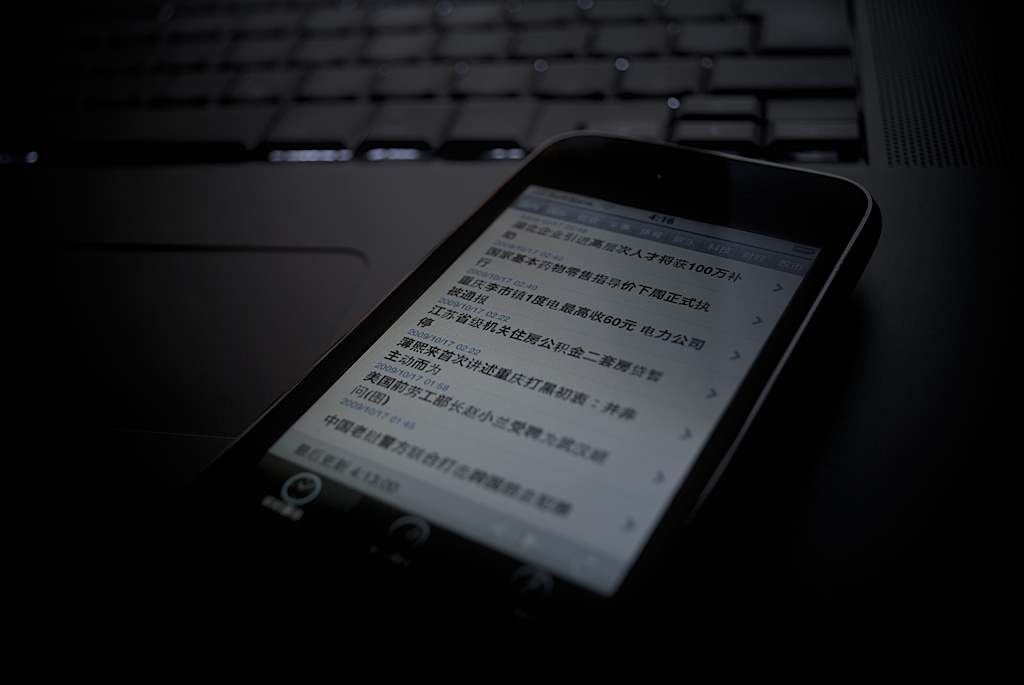Yesterday, several Wall Street analysts swallowed their pride and iPhone sales projections after the first four days of official iPhone sales in China amounted to 5,000 units. Whoa, 5,000? I’m stunned China Unicom sold that many. At $730 to over $1,000 price range, iPhone goes oddly—seemingly quite badly—together with average Chinese incomes. Apple’s mobile costs way too much for the market—or does it?
Several blogs, including All Things Digital, described iPhone’s China debut as a failure, feeding off analysts’ glum reaction. Piper Jaffray analyst Gene Munster, one of Apple’s biggest cheerleaders on Wall Street, described sales as “soft.”Soft, eh? Assuming, $730 a unit, somebody collected $3.65 million in iPhone sales in a market where, according to PayScale, the median salary in Beijing is 200,000 yuan (US $29,000). Hell, if $3.65 million is soft, please, give me merely 1 percent. That’s hard currency.
In one of my last stories for eWEEK, before they laid off my sorry ass (April 30, 2009), I explained just how much Apple needs strong distribution in China. Last month, for Betanews, I put some hard marketshare numbers behind handset manufacturers selling in China. Even with grey market sales, iPhone share was negligible, while Nokia and Samsung had 46.1 percent and 16.3 percent marketshare, respectively, in second quarter 2009, according to IDC.
Price is a problem for China Unicom iPhone sales, but so perhaps is the already robust grey market. Yesterday, iSuppli claimed that the Chinese grey market would move 145 million cell phones in 2009. That works out to 12.9 percent of the Chinese handset market, iSuppli claims. How many are iPhones? By IDC’s reckoning, iPhone didn’t even achieve 1 percent marketshare in China during second quarter. In a market where quarterly shipments are about 300 million that’s—well, you do the math. If China Unicom can sell 10,000 iPhones a month per quarter, it can match the grey marketers.
The real cost of iPhone is the monthly China Unicom subscription fee people pay, which tethers them to the carrier without option to use WiFi. Yes, Apple has removed WiFi from China Unicom iPhone. But people willing to pay higher fees under contract have options to get iPhone for free, according to iPhonAsia’s Dan Butterfield. So much for $730 to $1,000 per phone.
Still, whether or not people pay for the phone, costs smack against regional salary trends. Late last month, Hewitt Associates reported that in China salaries increased only 4.5 percent in 2009 year over year. While Americans might cheer such wage increases, in China the 4.5 percent is a reversal of growth to 2005 levels. More than 30 percent of companies in China are freezing wages; additionally, the reported voluntary turnover rates at 10.3 percent.
So what are iPhone’s real prospects in China? In the world’s largest handset market, any presence is better than none. There are people that can afford high-priced handsets and carrier subscription fees—just not the majority. Some sample median salaries, according to PayScale, which I converted to US dollars:
- Software developer: 100,000 yuan (US $14,600)
- IT project manager: 220,000 yuan (US $32,200)
- Marketing manager: 236,000 yuan (US $34,500)
- General operations manager: 516,000 yuan ($75,500)
- Country manager: 721,000 yuan ($105,610)
The point: There are definitely people in China well paid enough to buy iPhone should they really want one. But who are they? That’s a story I’d like to write in a subsequent post. Oddly Together is supposed to tell stories, and it’s your story about iPhone in China that I would like to tell.
Photo Credit: Satoshi Tomiyama
